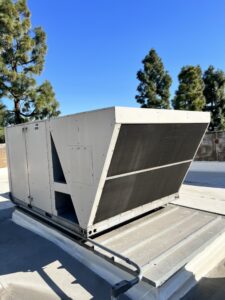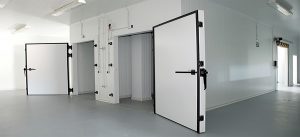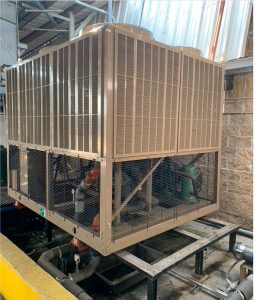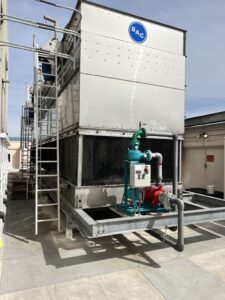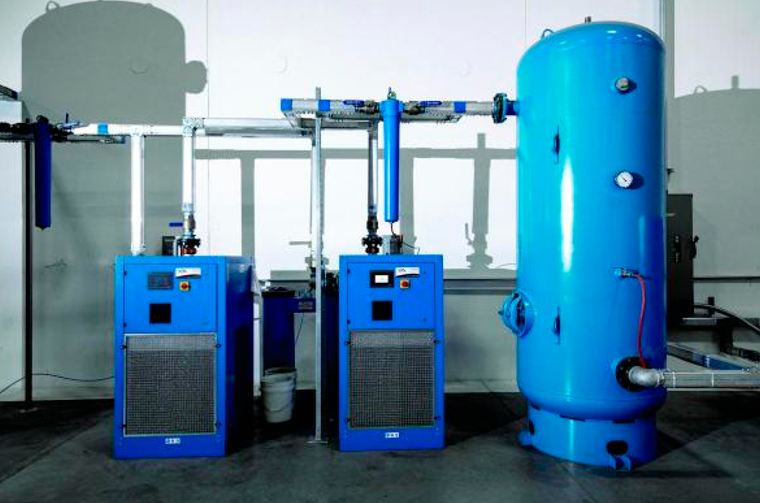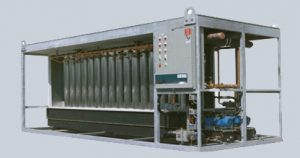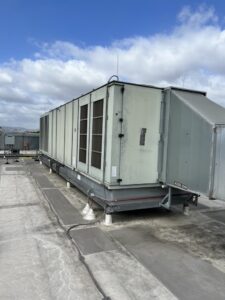Choosing the right HVAC Equipment is crucial for creating a comfortable environment in your home or commercial building. HVAC Systems which stands for Heating, Ventilation, and Air conditioning Systems, are designed to regulate temperature, control humidity, and improve the overall air quality of a space. Whether you’re looking to replace an old and inefficient system or install a new one, it’s important to understand the different types of HVAC systems available and the factors to consider before deciding.
Understanding HVAC Systems
HVAC Systems are responsible for providing heating and cooling to indoor spaces, ensuring a comfortable environment for the occupants. They consist of heating equipment, cooling equipment, and a network of ducts that distribute the conditioned air throughout the building. HVAC systems also play a crucial role in maintaining good indoor air quality by filtering out pollutants and allergens.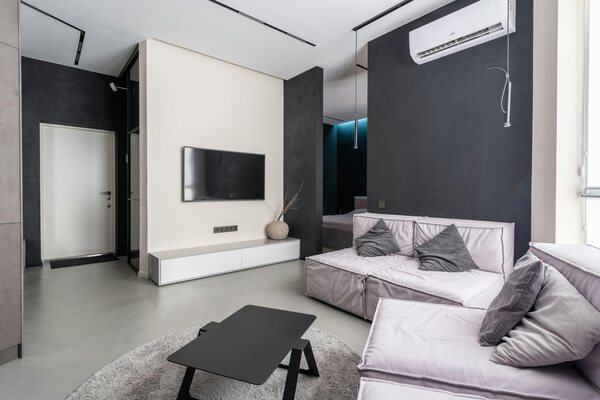
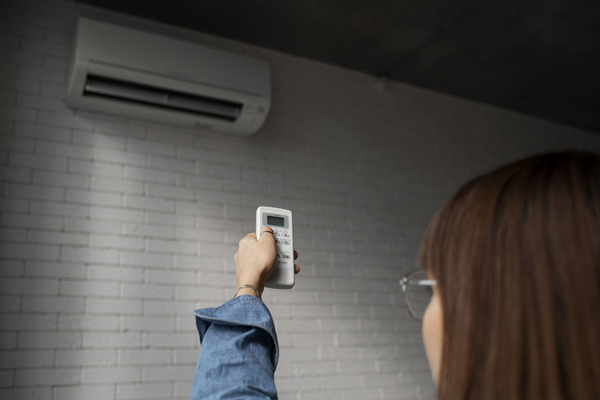
Different Types of HVAC Systems
There are several different types of HVAC systems available, each with its advantages and suitability for different environments. Understanding these different types can help you choose the right HVAC system for your specific needs. Here are some of the most common types of HVAC systems: Split Systems: This is the most common type of HVAC system, consisting of a central air conditioning unit and a furnace or heat pump. The air conditioning unit cools the air, while the furnace or heat pump provides heating. They are called “split” systems because the components are split between indoor and outdoor units. Duct Systems: Duct Systems are used to distribute heated or cooled air throughout a building. They are typically combined with a central air conditioning unit or a furnace to provide both heating and cooling. Duct systems require proper insulation and regular maintenance to ensure efficient operation. Packaged Systems: In packaged systems, all components of the HVAC System, including both heating and cooling elements, are contained in a single unit. These systems are typically used in buildings where space is limited, such as apartments or small commercial spaces. Geothermal Systems: Geothermal systems use the natural heat from the earth to provide heating and cooling. They utilize underground pipes to transfer heat to or from the ground, making them highly energy-efficient and environmentally friendly. Ductless Systems: Ductless systems, also known as mini-split systems, do not require ductwork. They consist of an outdoor unit and one or more indoor units, which are mounted on the walls or ceilings of individual rooms. Ductless systems offer flexibility and control over temperature in different areas of a building.
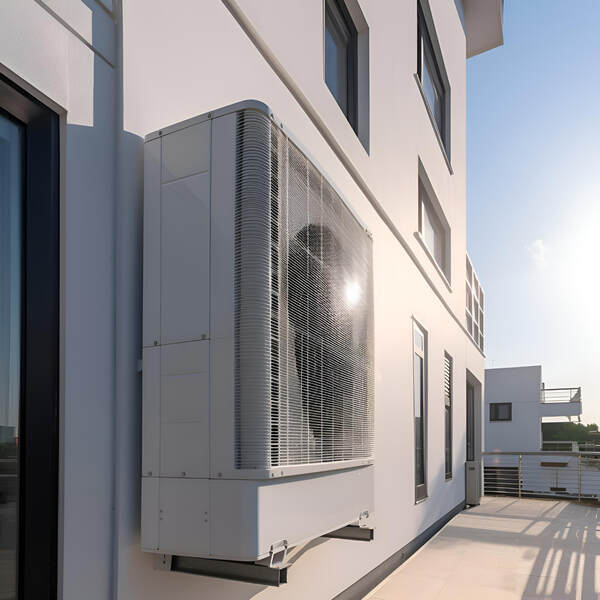
Factors to Consider Before Choosing an HVAC System
Choosing the right HVAC system involves considering several important factors. By taking these factors into account, you can ensure that your system meets your specific needs and provides optimal performance. Some of the key factors to consider include the size and capacity needs of your space, the energy efficiency and ratings of the system, and the climate and environmental considerations. Size and Capacity Needs One of the crucial factors to consider when choosing an HVAC system is the size and capacity needed to properly heat or cool your space. HVAC systems that are too small will struggle to meet the demand, leading to inefficiency and inadequate comfort. On the other hand, systems that are too large can result in excessive energy consumption and increased upfront costs. To determine the right size and capacity for your HVAC system, it’s important to consider factors such as the square footage of your space, the number of occupants, the insulation levels, and the climate of your region. Consulting with a professional HVAC contractor can help you accurately assess your specific needs and select the appropriate system. Energy Efficiency and Ratings Energy efficiency is another important factor to consider when choosing an HVAC system. Energy-efficient systems not only help reduce your carbon footprint but also result in lower energy costs over time. The efficiency of an HVAC system is measured by its SEER (Seasonal Energy Efficiency Ratio) rating for cooling and its AFUE (Annual Fuel Utilization Efficiency) rating for heating. The higher the SEER or AFUE rating, the more efficient the system. Additionally, consider looking for systems with ENERGY STAR certification, as they meet strict energy efficiency guidelines set by the Environmental Protection Agency (EPA). Investing in an energy-efficient HVAC system can save you significant money on energy bills in the long run. Climate and Environmental Considerations The climate and environmental impact of your HVAC system should also be taken into consideration. The climate of your region will play a role in determining the heating and cooling needs of your space. For example, a region with hot summers and mild winters may require a different type of HVAC system compared to a region with extreme temperatures. Additionally, consider the environmental impact of the system you choose. Look for systems that utilize environmentally friendly refrigerants and have a lower carbon footprint. Geothermal systems, for example, use renewable energy from the earth to provide heating and cooling, making them a more sustainable choice. By considering the climate and environmental impact, you can choose an HVAC system that aligns with your values and reduces your overall environmental footprint.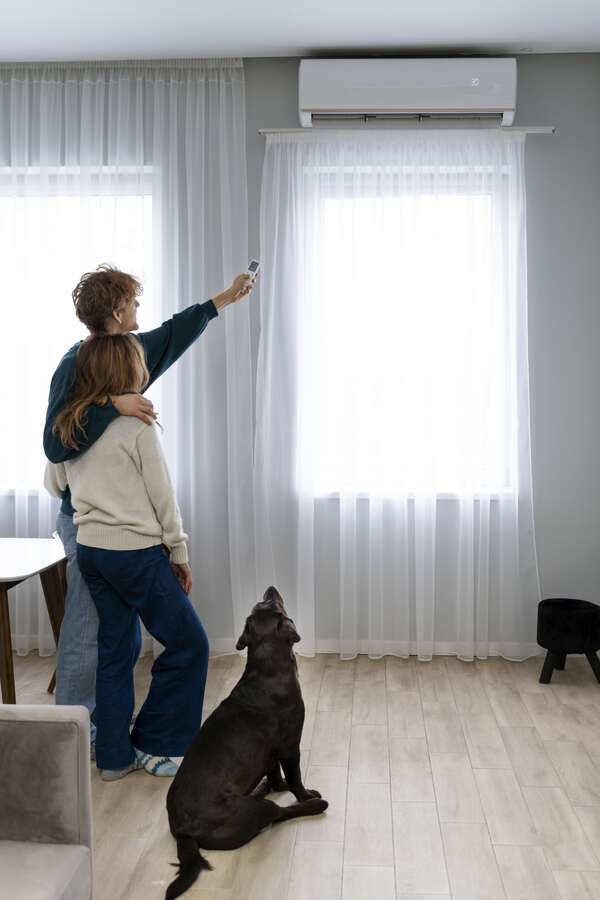

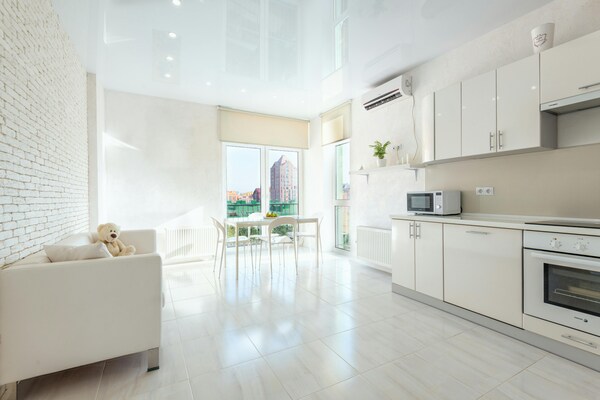
Exploring HVAC Equipment Types
To find the best HVAC equipment for your specific needs, it’s important to explore the different types of systems available. Each type has its advantages and considerations. Some of the common types of HVAC systems include split systems, ductless systems, packaged systems, and geothermal systems. Understanding the features and benefits of each type can help you make an informed decision and choose the right system for your space.Split Systems: Pros and Cons
Split systems are the most common type of HVAC equipment and consist of a central air conditioning unit and a furnace or heat pump. Here are some pros and cons of split systems to consider:Ductless Systems: When to Choose Them
Ductless systems, also known as mini-split systems, are a popular choice when traditional ductwork is not feasible or desired. Here are some situations when ductless systems are a good option: • When you have a space without existing ductwork: Ductless systems can be installed in spaces that do not have ductwork, making them a practical option for older homes or room additions. • When you want individual temperature control: Ductless systems allow for individual temperature control in different areas of the building, providing greater comfort and energy efficiency. • When you want installation flexibility: Ductless systems are easy to install and can be mounted on walls or ceilings, providing flexibility in placement options. • When you want to improve indoor air quality: Ductless systems often come with built-in air filters, improving indoor air quality by removing pollutants and allergens.Packaged Systems: Features and Benefits
Packaged systems are all-in-one units that contain both heating and cooling elements. Here are some features and benefits of packaged systems: • Convenient installation: Packaged systems are typically installed outdoors, on the roof of a commercial building or a foundation slab outside a residential building, making installation convenient and space-saving. • Ideal for limited space: Packaged systems are suitable for homes or buildings without basements or spaces for separate heating and cooling units. • Provides both heating and cooling: Packaged systems offer both heating and cooling capabilities, providing year-round comfort. • Lower upfront costs: Packaged systems generally have lower upfront costs compared to split systems, making them a cost-effective option for certain applications.Geothermal Systems: Understanding the Technology
Geothermal systems utilize the natural heat from the earth to provide heating and cooling. Here’s how geothermal systems work: • Geothermal heat pumps: Geothermal systems use a series of pipes, known as a loop, that are buried underground. These pipes circulate a fluid, usually a mixture of water and refrigerant, to exchange heat with the ground. • Heat exchange process: In the winter, the fluid absorbs heat from the ground and carries it back to the geothermal heat pump located within the building. The heat pump then transfers the heat to the indoor air. In the summer, the process is reversed, with the heat pump extracting heat from the indoor air and transferring it to the ground. • Energy efficiency: Geothermal systems are highly energy-efficient, as they utilize the relatively constant temperature of the ground to provide heating and cooling. This can result in significant energy savings and lower utility bills over time.From residential to commercial and industrial spaces, we’ve got all your HVAC needs covered. Our team specializes in maintenance, repair, and installation services tailored to suit your specific requirements. Don’t let heating or cooling issues affect your comfort or productivity.
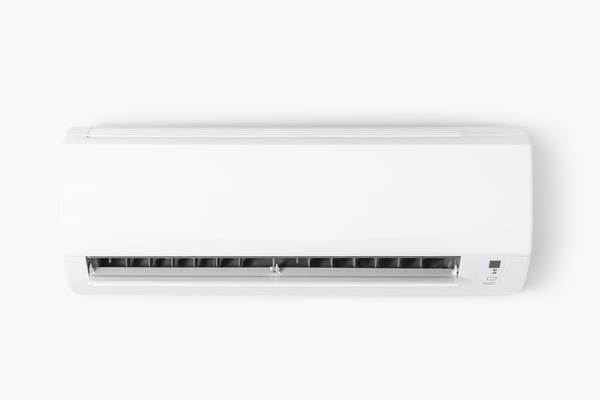
Assessing Your HVAC Needs
Assessing your HVAC needs is crucial before choosing a system. Consider factors such as the size and layout of your space, the specific heating and cooling requirements, and any special considerations based on the type of building (residential, commercial, or industrial). Consulting with a professional HVAC contractor can help you accurately assess your needs and select the right system for your requirements.Residential vs. Commercial vs. Industrial Uses
The HVAC needs differ for residential, commercial, and industrial buildings. Here are some factors to consider for each type: • Residential: In residential buildings, the HVAC system is typically designed to provide comfort for the occupants. Consider the size and layout of the space, the number of occupants, and any specific requirements for different areas of the building. • Commercial: Commercial buildings often have different zones with varying heating and cooling needs. Consider factors such as the size of the building, the number of occupants, the specific requirements of different areas (such as offices, retail spaces, or restaurants), and compliance with building codes and regulations. • Industrial: Industrial HVAC systems are designed to meet the specific needs of industrial processes, which may include ventilation, cooling for equipment, or maintaining specific temperature and humidity levels. Consider factors such as the size and layout of the facility, the specific requirements of the industrial processes, and compliance with safety and environmental regulations. Calculating the Right Size for Efficiency Calculating the right size for your HVAC system is crucial for energy efficiency and cost savings. Here are some factors to consider when determining the size: • Square footage: Measure the square footage of the space to determine the cooling and heating load requirements. A larger space will require a larger HVAC system. • Insulation: Consider the insulation levels of the building, as well as the number and type of windows and doors. Well-insulated spaces will have lower cooling and heating load requirements. • Occupancy: Determine the number of people who will be occupying the space regularly, as this will affect the cooling and heating load. • Climate: Consider the climate of your region, as this will impact the cooling and heating requirements. To accurately determine the right size for your HVAC system, it is recommended to consult with a professional HVAC contractor who can perform a load calculation using industry-standard methods.What is the most energy-efficient HVAC system?
The most energy-efficient HVAC equipment depends on several factors, including your specific needs and the climate of your region. Heat pumps with high SEER ratings are often considered among the most energy-efficient options, as they provide both heating and cooling capabilities.How often should HVAC systems be replaced or serviced?
HVAC equipments should be serviced at least once a year to ensure optimal performance and prevent potential issues. The lifespan of an HVAC system can vary depending on factors such as maintenance, usage, and the type of system. On average, HVAC systems can last between 15 and 25 years before replacement may be necessary.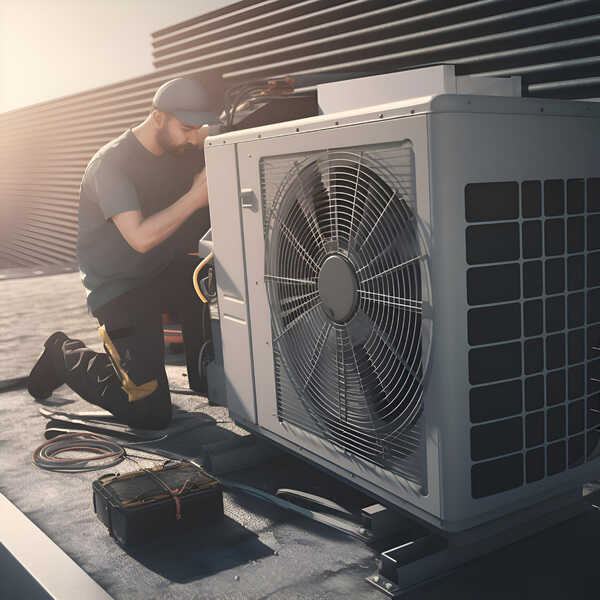
HVAC Equipment Installation and Maintenance Considerations
Proper installation and maintenance are essential for the optimal performance and longevity of your HVAC system. Consider the following factors: • Professional installation vs. DIY: While DIY installation may seem cost-effective, it is recommended to hire a professional HVAC contractor for proper installation to ensure safety and optimal performance. • Ongoing maintenance requirements: HVAC systems require regular maintenance, including filter changes, cleaning, and inspections. Consider the maintenance requirements of the system you choose and the availability of service contracts for ongoing maintenance. • Warranty and service contracts: Check the warranty offered by the manufacturer and consider purchasing additional service contracts for regular maintenance and repairs. This can help prolong the life of your system and ensure its proper functioning.Professional Installation vs. DIY
While it may be tempting to attempt a DIY installation to save money, it is highly recommended to hire a professional HVAC contractor for proper installation. Here are some reasons why professional installation is beneficial: • Safety: HVAC systems involve electrical components and complex installation procedures. Professionals are trained and experienced in handling these systems safely. • Expertise: HVAC contractors have in-depth knowledge of different HVAC systems and can guide you in selecting the right system for your needs. They can also ensure proper sizing and installation, optimizing the performance and efficiency of your system. • Compliance: Professional HVAC contractors are familiar with building codes and regulations, ensuring that your system meets all the requirements. • Warranty: Many HVAC manufacturers require professional installation for warranty coverage. Hiring a professional ensures that your system is installed correctly and protects your warranty. While DIY installation may seem cost-effective initially, improper installation can lead to system malfunctions, reduced efficiency, and even safety hazards. It’s best to invest in professional installation for a trouble-free and efficient HVAC system.Ongoing HVAC Equipment Maintenance Requirements
Regular maintenance is essential for the optimal performance and longevity of your HVAC system. Here are some ongoing maintenance requirements to consider: • Filter changes: Regularly changing or cleaning air filters is essential for maintaining good indoor air quality and maximizing the efficiency of your system. Check the manufacturer’s recommendations for filter replacement frequency. • Cleaning: Regular cleaning of your HVAC system, including the condenser coils and evaporator coils, helps maintain optimal performance and prevents the buildup of dirt and debris. • Inspections: Schedule regular inspections by a professional HVAC contractor to ensure that all components of your system are working properly and to identify any potential issues before they become major problems. • Service contracts: Consider purchasing a service contract with a reputable HVAC contractor. These contracts typically include regular maintenance visits, discounted repairs, and priority service in case of emergencies. Proper maintenance and regular inspections can help extend the lifespan of your HVAC system, improve energy efficiency, and prevent costly repairs. It is recommended to consult with a professional HVAC contractor for guidance on the specific maintenance requirements of your system.
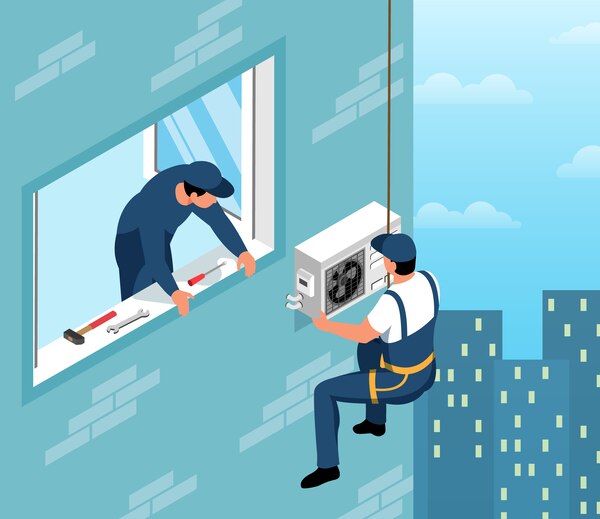
Choosing the right HVAC equipment is crucial for comfort and efficiency. Consider factors like size, energy efficiency, and environmental impact. Assess your specific needs and explore different system types to make an informed decision.
Installation and maintenance play a significant role in the system’s longevity and performance. Analyze the cost implications, including long-term savings and total ownership expenses. Prioritize eco-friendly options and certifications for sustainable choices.
Address common queries regarding energy efficiency and maintenance schedules to ensure optimal system functionality. Making an informed decision about HVAC equipment will enhance comfort, reduce costs, and minimize environmental impact.
Ice Bear Inc. stands as a reliable partner for businesses seeking excellence in maintenance, installation, and repair services. By following best practices and utilizing cutting-edge technologies, Ice Bear Inc. is the name to trust.

